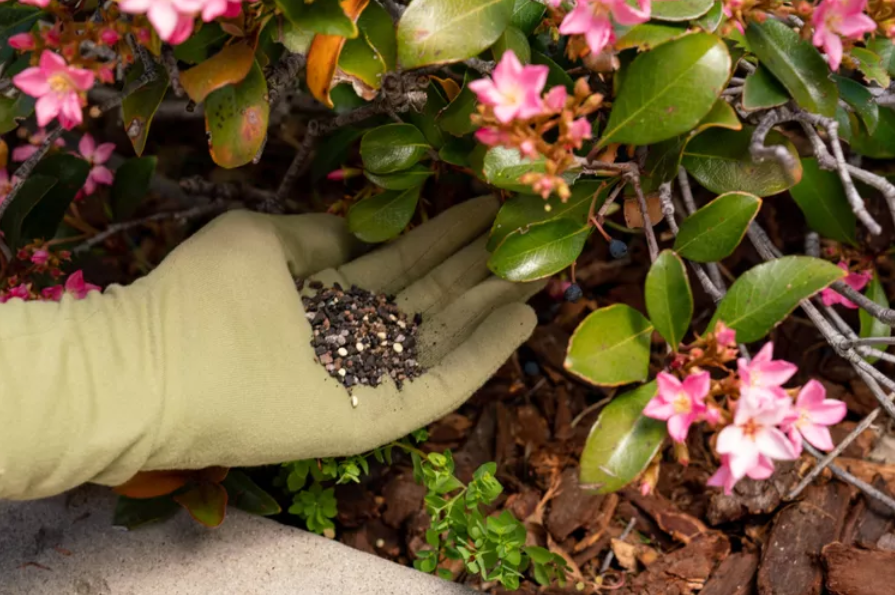
Exhibition time: 17-19 March, 2026 Shanghai, China
 中文
中文

Exhibition time: 17-19 March, 2026 Shanghai, China
 中文
中文

KEY POINTS
·Fertilizing during hot weather can harm your plants and is best avoided.
·Extreme heat stresses plants and conflicts with the fertilizer.
·If you must fertilize, use the right fertilizer and avoid extreme heat.
Fertilizing your garden in the heat can be risky. While adding nutrients is essential for healthy plants, summer or other periods of heat may not be the best time for this.
So, can you use fertilizer in hot weather without harming your plants? Two garden experts with years of experience weigh in.
MEET THE EXPERT
Sara Rubens is a garden coach and founder of Seed to Sanctuary.
Benjamin Hanley is a landscape designer and owner of Hanley Landscape Design.
Can You Use Fertilizer in Hot Weather?
It's safest to avoid fertilizing in hot weather. If the plants are drought- or heat-stressed, summer fertilizing in high heat likely will do more harm than good.
Landscaper Benjamin Hanley likes to avoid fertilizing in high heat—especially with high-nitrogen fertilizers—since it can backfire and damage the plants.
Garden coach Sara Rubens says that if you decide to fertilize in hot weather, you need to choose the right type of fertilizer and apply it carefully.
What Happens When Fertilizer Is Applied in Extreme Heat
Adding fertilizer to a plant in extreme heat places undue stress on the plant.
As temperatures heat up, plants slow their growth to conserve energy and moisture, Hanley says. If fertilizers with high nitrogen are applied during this stressful period, maximum growth is encouraged.
Essentially, the plant is forced to grow foliage in high heat. This type of growth is unsustainable in hot weather.
Problems With Fertilizing in Hot Weather
Using fertilizer in hot weather brings on a host of problems, including plant burn, accelerated evaporation, and wilted leaves.
·Fertilizer Burn
Synthetic, fast-acting fertilizers can cause fertilizer burn, where salts build up in the soil and damage roots, Rubens says.
This leads to a condition called fertilizer burn, where the leaves turn dry, brown, or yellow.
·Damaged Roots
Although visible damage to a plant is often limited to the leaves, it's crucial not to overlook the damage below ground.
Synthetic fertilizers contain high amounts of nitrogen. The nitrogen can stress out your thirsty plants and damage their roots.
·Weakened Plant
After fertilizing in hot weather, the plant may look well for a few days, but the root system will have trouble supporting the surge in leaf tissue, Hanley says.
"The imbalance weakens the plant and can cause it to dry out or become vulnerable to a range of pests and diseases," says Hanley.
·Wilted Leaves
Along with turning brown or yellow, leaves will also wilt, curl, or die off. This may be the result of excess salts being introduced into the soil near the plant roots. Or it may be a result of increased evaporation.
Fertilizers You Can Use in Heat
Slow-release synthetic or organic fertilizers like compost, worm castings, or fish emulsion are safer choices, recommends Rubens.
"They break down gradually and are less likely to burn plant roots," she says. She also recommends liquid seaweed and compost tea.
Fertilizers to Avoid in Heat
Synthetic, fast-acting fertilizers should not be used during periods of extreme heat, advises Rubens. She highlights granular-format fertilizer high in nitrogen as being especially harmful during hot weather.
How to Fertilize in Hot Weather
The safest approach when fertilizing in hot weather is to avoid it altogether. But if you decide to do so, Rubens and Hanley offer the following tips:
·Avoid Peak Heat
Distinguish between typical summer heat and rare periods of emergency heat. Fertilize during typical heat, while taking precautions. Avoid peaks of high heat if possible.
"We typically avoid fertilizing during peak heat unless it is absolutely necessary," Hanley says.
·Water in Morning or Evening
If you must fertilize during very high heat, do so only in the early morning or evening, Rubens says. Better yet, water the plants in the middle of the night, when evaporation rates are at their lowest.
·YOU MIGHT NEED…
To slow evaporation, water your plants while you're asleep. An electronic hose timer can automatically control the water. We tested units for price, accuracy, durability, and ease of use to help you find the best hose timers.
·Use the Right Fertilizer
If fertilizing in hot weather, use slow-release synthetic fertilizers. Better yet, use organic fertilizers.
·Mix Fertilizer in Soil
Don't toss the fertilizer on the surface of the soil. Instead, incorporate the fertilizers into the soil to prevent losses. If you're not able to mix the fertilizers, use a liquid fertilizer.
·Add Water
Before adding the fertilizer, thoroughly water the soil. Water helps the fertilizer break up and better incorporate into the soil.
Source:www.thespruce.com